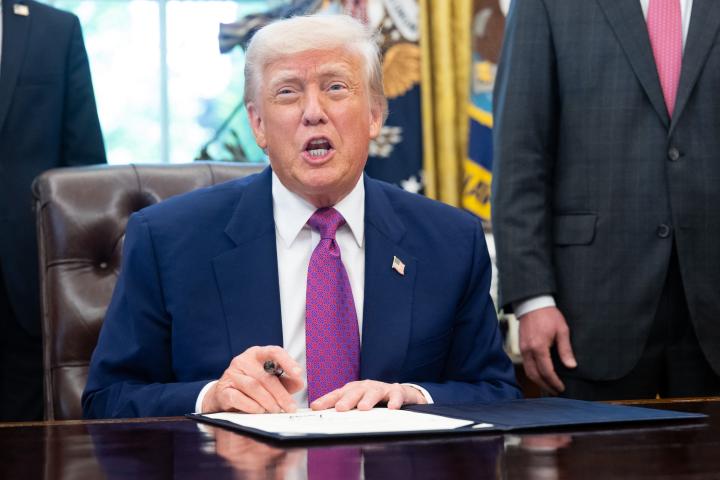A Federal Court of Appeal on Thursday temporarily reinstated President Donald Trump’s sweeping tariffs, pausing a lower court’s decision that struck down the controversial levies as beyond presidential authority.
In a short but significant order, the U.S. Court of Appeals for the Federal Circuit granted an administrative stay of the U.S. Court of International Trade’s ruling, which had permanently blocked Trump’s 10% tariffs imposed on nearly all U.S. trading partners, including Mexico, Canada, and China.
The trade court had ruled Wednesday that the International Emergency Economic Powers Act of 1977 (IEEPA), which Trump cited as the basis for the tariffs, did not grant the president unlimited authority to set tariffs as a means to combat drug trafficking or trade imbalances.
“The Worldwide and Retaliatory Tariff Orders exceed any authority granted to the president by IEEPA,” the three-judge panel wrote, delivering a sharp rebuke to a cornerstone of Trump’s economic policy.
The trade court had given the administration ten days before its permanent injunction would take effect. But with the appeals court’s intervention, the tariffs will remain in place, for now, while the legal fight continues. The appellate panel ordered the plaintiffs, which include five U.S.-based companies and a coalition of 12 states, to respond to the stay request by June 5. The court will consider both lawsuits together.
The Justice Department had quickly asked the Federal Circuit to halt the lower court’s decision while it appeals, warning that the ruling would trigger “irreparable national-security and economic harms.” The department also hinted that it would escalate the case to the U.S. Supreme Court if necessary.
White House spokesperson Kush Desai praised Thursday’s appellate ruling as a win for American industry.
“This is a positive development for America’s industries and workers,” Desai said in a statement to CBS News. “The President will continue to use all tools at his disposal to advance trade policy that works for all Americans.”
Trump’s tariffs, launched on what the White House dubbed “Liberation Day” in April, were introduced under emergency powers and aimed to pressure trading partners, retaliate against trade imbalances, and curb drug trafficking. But critics argue they’ve rattled global markets and veered dangerously from established trade law.
Multiple legal challenges have emerged since Trump invoked IEEPA to justify the sweeping tariffs, a novel and aggressive use of the 1977 law. Courts have begun pushing back. In a separate ruling, U.S. District Judge Rudolph Contreras sided with two Illinois toy companies and barred the administration from collecting tariffs on their imports, calling Trump’s use of IEEPA unlawful.
“This case is about whether IEEPA enables the president to unilaterally impose, revoke, pause, reinstate, and adjust tariffs to reorder the global economy,” Judge Contreras wrote. “The court agrees with plaintiffs that it does not.”
The ruling has been paused for 14 days to allow for appeal to the D.C. Circuit, another potential battleground in a mounting legal war over presidential power in trade.
If the appeals courts uphold the lower decisions, it would be a devastating blow to Trump’s trade legacy. The former president has long argued that his tariffs are essential for restoring U.S. manufacturing and boosting government revenue; estimates claimed more than $1 trillion could be raised.
As the legal wrangling intensifies, the future of Trump’s trade doctrine hangs in the balance, with courts now asked to define the limits of executive power in an era of increasingly aggressive economic nationalism.



